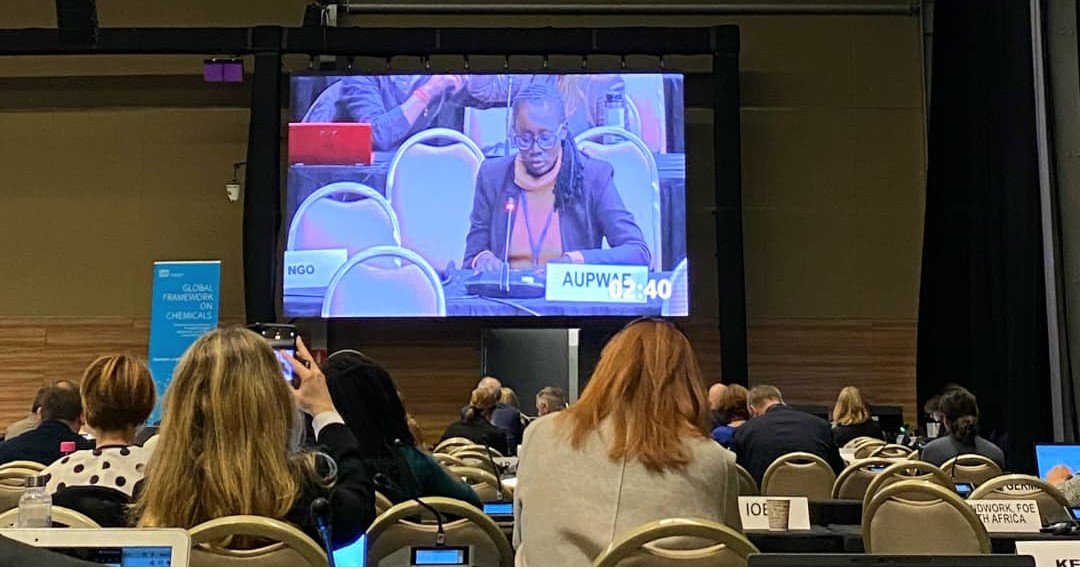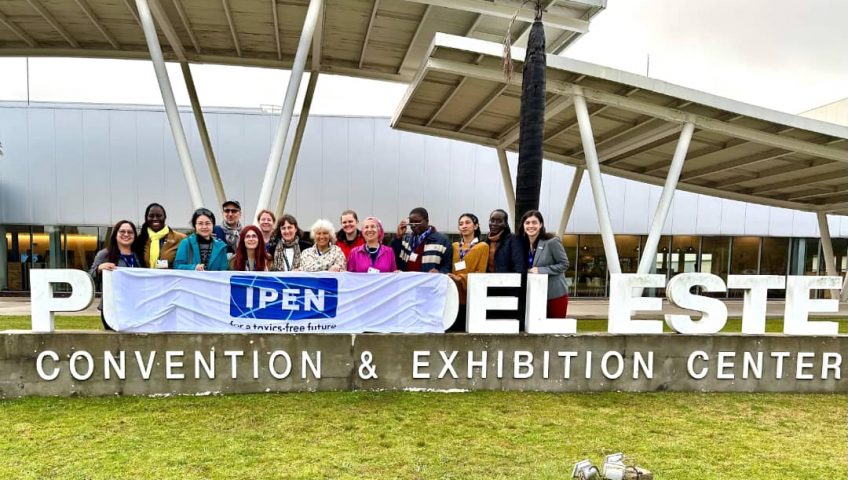Thank you, Co-Chair for the floor.
My name is Anna Odur and I speak on behalf of the Association of Uganda Professional Women in Agriculture and Environment (AUPWAE).
AUPWAE, a network of over 250 professional environmentalists, agriculturalists and related professions, seeks to promote the welfare, skilling and capacity development of its target group, the vulnerable women and girls in rural areas.
We welcome all efforts towards the operationalization of the Global Alliance on Highly Hazardous Pesticides (HHPs). We thank the GFC Secretariat and other institutions who have been instrumental in delivery of related key information documents including document UNEP/GFC/OEWG1/INF/14 that outlines the draft operational framework of the Alliance. We further support the submissions made by IPEN and other colleagues on the importance of the Alliance.
Key challenges we have encountered in effectively addressing HHPs include: limited knowledge on highly hazardous pesticides particularly for vulnerable communities; And the need for access to products and financing mechanisms for a meaningful shift towards safer alternatives.
Our recommendations:
- We encourage proactive ongoing multi-sectoral awareness campaigns on HHPs, with materials that are translated and verified into local languages. The information disseminated should include health, economic and environmental impacts of highly hazardous pesticides and should be targeted to government ministries, pesticides regulators and users, civil society representatives, development agencies, media and the general public.
- We call for open and continued consultations on HHPs alternatives at all levels and with all stakeholders, leaving no one behind particularly women and girls who are largely still excluded from decision making spaces.
Thank you very much.


